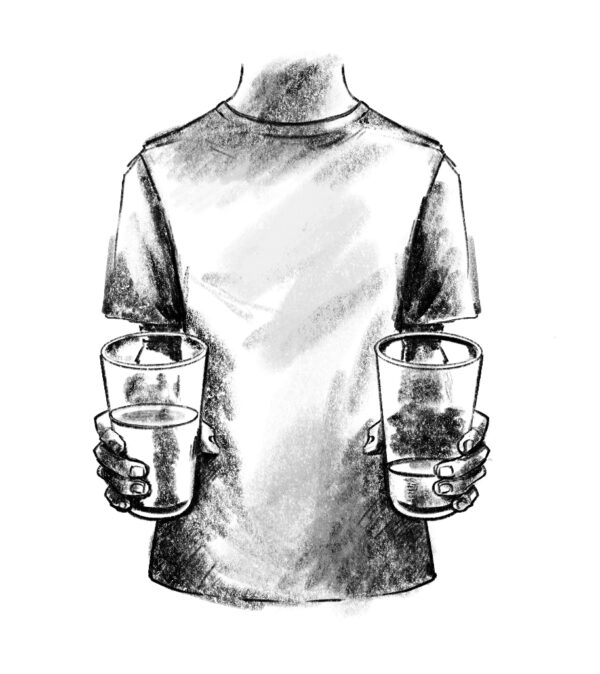Insights
Hold On Loosely

Some of you may be familiar with the images above. They represent the two glasses exercise titled Hold on Loosely in the book, The Power of Doing What Matters.
In most individuals, lightening your grip on the glasses allows you to feel the difference in the glasses more easily. The same is true in most physical sports activities: the lighter you hold the racquet, bat, or ball, the more you feel and the better your performance. The same holds true for emotional efforts. The harder you grip or squeeze a situation or thought, the less you will perceive. Learning to lighten your grip on what you see, hear, or feel will not only increase your experience, it can also improve your performance.
This exercise has often been one of the most impactful for many of my elite athletes and resiliency clients. It applies to so many situations for helping you understand that the more you tense up or stress about a situation or performance, the poorer your outcome will be.
Recently there has been increasing emphasis on the importance of sleep. A new study identified that one night of poor sleep leads to a decrease in your immune system’s ability to fight inflammation. Yes, one night of poor sleep resulted in a depletion in the cells that help you fight illness and disease. The study also showed that if your body mass index was equivalent to being overweight or obese, the complications of one night of poor sleep was significantly magnified.
Often science reports like these inform us of things we already understand or expect. If you have a poor night of sleep, you don’t feel as sharp or good the next day. Scientific findings like these can help you understand that not feeling sharp the next day is more than just a feeling. There are real physiologic changes. This level of understanding can help get our attention to do something to improve it. One night of sleep may not cause chronic disease but abundant poor nights can accumulate to cause problems.
At the Institute and in the book, The Power of Doing What Matters, we emphasize that the easiest way to impact a challenging or negative situation like poor sleep, is to focus on good things that are in your control.
The first step in reframing your approach to improving your sleep is to stop squeezing the glass about sleep. Often poor sleep is getting too much of your attention. Instead, put your attention to becoming an elite athlete for your relaxation. Put attention and practice to daily rituals and strategies that stimulate your parasympathetic nervous system. The parasympathetic nervous system is our “rest and digest” regulating system. It aligns with holding the glass loosely. There are many ways to prompt this system. . Number one on the list is likely diaphragmatic breathing.
Here’s the science on parasympathetic stimulation. It increases immune function. One day of holding the glass loosely improves your ability to fight illness and disease. Yes, more than a feeling, a physiologic change. And diaphragmatic breathing and similar parasympathetic activations improve sleep.
The key to training your parasympathetic nervous to improve sleep and overall health is to choose activities that you can practice daily for a long period of time. Diaphragmatic breathing, one-leg stance juggling, and other parasympathetic stimuli must be done consistently, daily for months and years. Why wouldn’t you?
Many of our athletes would come to me to improve their relaxation or concentration in the batter’s box, on the pitching mound or on the putting green. Our approach and focus would be to improve their ability to be a relaxed and focused person all the time so that when they entered the playing field or competition, they simply accessed what they had practiced. Being relaxed and focused.
Those athletes and clients that became elite for their relaxation did very well in their game. Many of our clients who become elite for their relaxation do the same for their sleep.
In the coming weeks we will review many of the exercises that are simple and easy to do. We’ll look at stories and examples of how to be “all in” on training your nervous system for resilience. For now, when it comes to getting a good night’s rest, hold on loosely.
Reach for the stars,
Clayton Skaggs

Subscribe For More!
Want to receive more Insights like the one above? Complete the form below to subscribe.